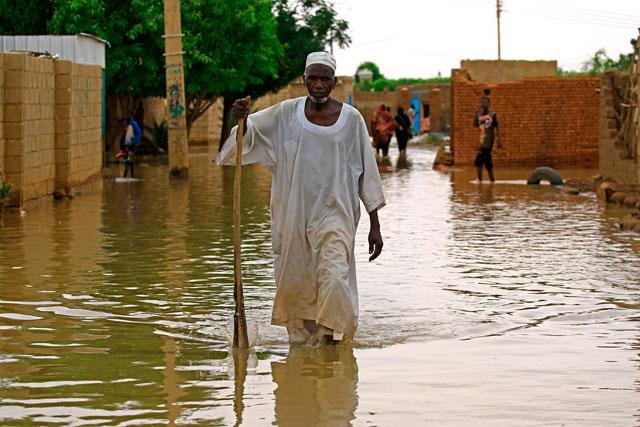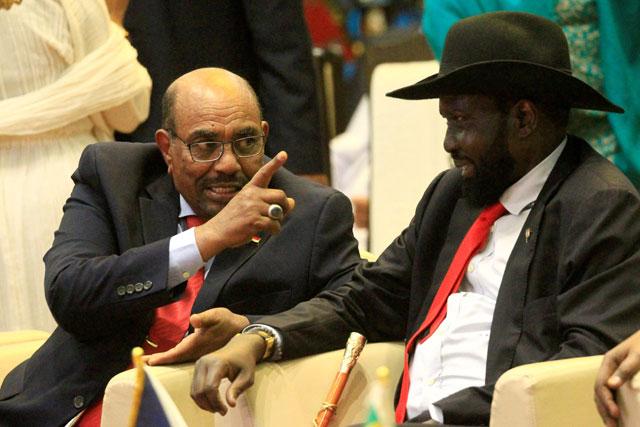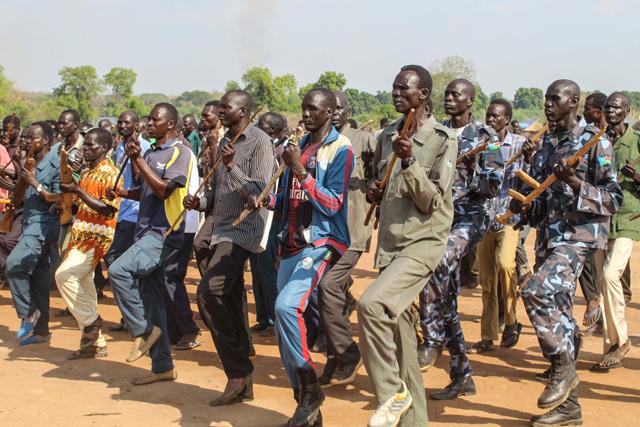You are here
Who are the Sudanese rebels agreeing peace?
By AFP - Aug 30,2020 - Last updated at Aug 30,2020
KHARTOUM — Sudan’s main rebel alliance has agreed a landmark peace deal with the government, raising hopes for the end of 17 years of conflict, although holdout groups remain.
Prime Minister Abdalla Hamdok and rebel leaders are due to sign the final agreement on Monday in Juba, the capital of neighbouring South Sudan, which has hosted and helped mediate the talks since late 2019.
The rebel Sudan Revolutionary Front (SRF), founded in 2011, includes four groups from the western region of Darfur and the southern states of South Kordofan and the Blue Nile.
Darfur has been devastated since 2003 by a conflict that has left 300,000 people dead and 2.5 million others displaced, according to the United Nations.
Conflict in South Kordofan and Blue Nile erupted in 2011, following unresolved issues from bitter fighting there in Sudan’s 1983-2005 civil war.
The rebel groups are largely drawn from non-Arab minority communities that long railed against Arab domination of successive governments in Khartoum.
Rebels fought troops deployed by now-toppled autocrat Omar Al Bashir, who is wanted by the International Criminal Court over charges of genocide and crimes against humanity in the conflict.
After Bashir was overthrown in April 2019, the transitional government led by Hamdok has made peacemaking with the rebels one of its top priorities.
The SLM was founded in 2002 and is based in the vast western Darfur region.
The movement, which complained of economic and political marginalisation of Darfur, has split in sometimes rival factions.
Key leaders include Abdelwahid Nour, from the Fur ethnic group, and Minni Minnawi of the Zaghawa people.
In February 2003, the movement carried out its first major operation by attacking the city of Al Fasher, the capital of the North Darfur state.
The fighting escalated when Khartoum responded with a scorched-earth campaign.
In 2006, the SLM split into two factions following disagreements between Nour and Minnawi, who signed a peace deal with the government in Nigeria.
In 2010, Minnawi resumed fighting against Bashir’s government, citing its “lack of seriousness” in honouring the agreement.
Only Minnawi’s faction will sign the peace deal with Hamdok’s government on Monday.
Nour, who has been based in Paris for several years, refused to take part in the negotiations.
Sudan Liberation Movement, Transitional Council
The group was formed in 2012 by dissidents from the SLM.
It is led by Alhadi Idris Yahya, who in September 2019 took over the presidency of the Sudan Revolutionary Front.
Justice and Equality Movement (JEM)
JEM was founded in 2001 by Khalil Ibrahim, a member of the Zaghawa ethnic group, who was once close to Bashir.
He was head of the Popular Defence Forces, an Islamist paramilitary group created in 1989, which helped Bashir’s rise to power.
Ibrahim also had close links to Islamist leader Hassan Al Turabi, who orchestrated Bashir’s 1989 coup.
He later broke with Turabi and joined the rebels in Darfur.
In 2008, he carried out his most daring attack on the city of Omdurman, across the Nile river from the capital Khartoum, killing more than 220 people.
In December 2009, Ibrahim took part in talks with Khartoum, but withdrew before the signing of a deal.
He was killed in December 2011 in a targeted airstrike and was succeeded by his brother Gibril.
Sudan People’s Liberation Movement-North (SPLM-N)
The SPLM-N began fighting Khartoum in the 1983-2005 civil war, which paved the way for the independence of South Sudan.
When South Sudan became a separate nation in 2011, the rebel forces in South Kordofan and Blue Nile were left behind in the rump state of Sudan.
In 2017, the SPLM-N split into two factions, one led by Malik Agar and the other headed by Abdelaziz Al Hilu.
Hilu will not ake part in the signing on Monday, as he sees the formation of a secular state as a prerequisite to any peace deal.
Hilu also refused to hold talks with Sudanese paramilitary commander Mohamed Hamdan Daglo, best known by his nickname “Hemeti”.
He accuses Daglo of heading key militias responsible for some of the worst atrocities of the conflict.
Related Articles
JUBA — Sudanese leaders and rebel commanders agreed Monday on a "historic" peace deal, a crucial step towards ending 17 years of conflict in
JUBA — South Sudan’s President Salva Kiir has been appointed to mediate peace talks between Khartoum and rebels in the Blue Nile, South Kord
JUBA — Sudan's government signed an agreement with a rebel faction on Sunday to guide future peace negotiations as the country's transitiona



















